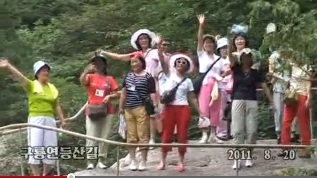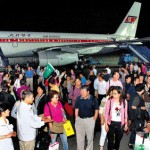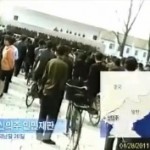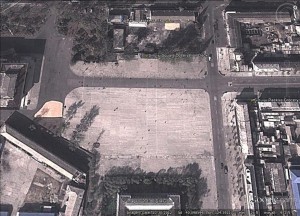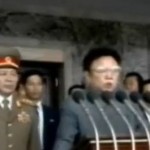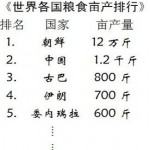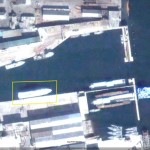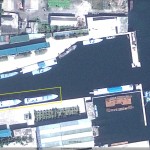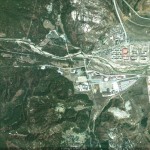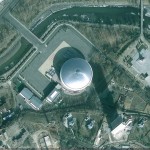UPDATE: DPRK to Set Up Special International Tour Zone at Mount Kumgang
Institute for Far Eastern Studies (IFES)
NK Brief (11-05-2)
2011-5-3
According to KCNA news agency, the Presidium of the DPRK Supreme People’s Assembly issued a decree on April 29 to set up a special zone for international tours at Mount Kumgang. It reported the special zone in Kangwon Province would include Kosong-eup and Onjong-ri of Kosong County; Samil-po, Hae-Kumgang, and Nae-Kumgang areas in Kumgang County, and Thongchon County.
The Central Tourist Guidance Agency expressed its intentions of increasing new tourist destinations depending on the progress made in the special zone. In addition, it also announced the annulment of October 2002 decree on the Kumgang Special Tourism Zone, which rescinded the exclusive rights of Hyundai Asan.
Previously on April 8, the DPRK’s Korean Asia-Pacific Peace Committee (KAPPC) informed Hyundai Asan that it would retract the monopoly rights of Hyundai. Instead, it expressed plans of entrusting the tours from the North through foreign businesses while Hyundai will continue to lead the tours from the South. The North announced the Mt. Kumgang tours will be renewed through appropriate national measures.
The KCNA explained, “The DPRK’s sovereignty will be exercised in the special tour zone.” Additionally, the DPRK is encouraging free investment in the special zone by corporations, individuals and other economic bodies and such investments are protected by law.
On the May issue of South Korean monthly magazine Minjog 21, the Committee of Investment and Joint Ventures of the DPRK and Kempinski Group was reported to have reached an agreement on its entrance into the Kumgang tourism project. The magazine also reported the Kempinski Group’s plans of modernizing the Wonsan Airport, development of Wonsan City into a resort town, and building roads connecting Wonsan with Kumgang.
Kempinski Hotels is a luxury hotel group known for its five-star hotels and resorts and recently expanded into Asia with current projects underway with India and China. Kempinski is majority owned by the Crown Property Bureau of Thailand and the royal family in Bahrain. Once the Kempinski Hotel is completed in Wonsan, it is expected to become an international resort town linked with Mt. Kumgang Special Zone.
The Mt. Kumgang tours from the North are expected to be managed by the Kempinski Hotels while the tours from the South will be still managed from Hyundai. An interview on April 13 by Ri Jong Hyok, vice-chairman of the KAPPC commented, “The buildings and facilities built by Hyundai will come to ruins if left at its current unoccupied stage. This is the reason why we are attempting to restart the tours, but only until the South decides to resume the tours.”
The Committee of Investment and Joint Ventures was upgraded from Joint Venture and Investment Guidance Bureau last July, becoming a central state organization in charge of all projects related to investments and joint ventures from overseas.
ORIGINAL POST: According to Yonhap:
North Korea’s rubber-stamp parliament said Friday that it will set up a special zone for international tours of the country’s troubled mountain resort in an apparent move to induce foreign investment.
The North “will encourage free investment in the development of the special zone by corporate bodies, individuals and other economic bodies and will protect by law the invested capital and properties and income and other profits to be gained through business,” the North’s Supreme People’s Assembly said in a decree carried by the country’s official Korean Central News Agency (KCNA).
The legislature said North Korea’s sovereignty will be exercised over the zone that includes several areas on Mount Kumgang, a scenic resort on the country’s east coast.
It also said the agency in charge of tourism will take relevant measures to increase new tourist destinations, depending on the progress in the special zone development. No details were provided.
Lee Jong-joo, a spokeswoman for South Korea’s Unification Ministry handling inter-Korean affairs, said the North’s move appears to be aimed at attracting foreign capital to develop the resort.
A spokesman for Hyundai Asan, a key South Korean tour operator in the mountain resort, said his company had no immediate comment on the North’s announcement. He asked not to be identified as he was not authorized to speak to media.
The decree came weeks after Pyongyang terminated exclusive tourism rights for Hyundai Asan, citing skepticism over the resumption of the joint venture.
The two Koreas launched the joint tour program in 1998 as part of moves to boost cross-border reconciliation and cooperation, providing a legitimate source of hard currency to the cash-strapped North.
However, Seoul suspended the tour program in 2008 when a female South Korean tourist was shot dead after straying into an off-limits military zone near the resort.
Pyongyang claims it has done everything to shed light on the shooting and guarantee the safety of future tourists, but Seoul says it has yet to receive a formal apology for the shooting or government-to-government promises to enhance safety.
Here is the KCNA statement:
Pyongyang, April 29 (KCNA) — A special zone for international tour of Mt. Kumgang will be established in the DPRK.
A decree on this decision was issued by the Presidium of the DPRK Supreme People’s Assembly on Friday.
According to the decree, the special zone is to be set in the area of Mt. Kumgang in Kangwon Province and the zone will include the township and some areas of Onjong-ri in Kosong County, Lagoon Samil, Sea Kumgang area, Inner Kumgang area of Kumgang County and some areas of Thongchon County.
The DPRK sovereignty will be exercised over the zone.
The DPRK will encourage free investment in the development of the special zone by corporate bodies, individuals and other economic bodies and protect by law the invested capital and properties and income and other profits to be gained through business.
The Central Tourist Guidance Agency shall take relevant measures to increase new tourist destinations, depending on the progress made in the SZ development.
The decree of the SPA Presidium on “Setting Up Mt. Kumgang Tourist Zone in the DPRK” issued on Oct. 23, 2002 is no longer valid.
Aside: So there are two DPRK agencies that deal with tourism: KITC and the “Central Tourist Guidance Agency”?
Historical information:
The Kumgangsan resort was the scene of a terrible tragedy, the shooting of a South Korean tourist. Allowing a joint-Korean investigation of the murder became a precondition by the South Korean government for resuming tourism to the resort.
On March 4th 2010, the DPRK first threatened to revoke contracts with the South Korean Hyundai-asan stating that a future guarantee of safety was sufficient for resuming tourism.
Later in th month, Hyundai-asan’s chief offered to resign.
In April 2010, the DPRK “seized” the Hyundai properties in the Kumgangsan resort.
Shortly afterwards, Chinese tourists began arriving at the resort (here and here).
The Donga Ilbo reported that the NDC took over the properties and put them in the Korea Taepung International Investment Group portfolio. If the property was under Taepung control and has now been put under normal ministerial control, then this signals that Taepung’s sun might have set.
If possible, I would expect that Hyundai-asan will attempt to bring suit in South Korea against whichever company chooses to set up in the zone.
Read the full sotry here:
N. Korea to set up special int’l tour zone at Mount Kumgang
Yonhap
2011-4-29
